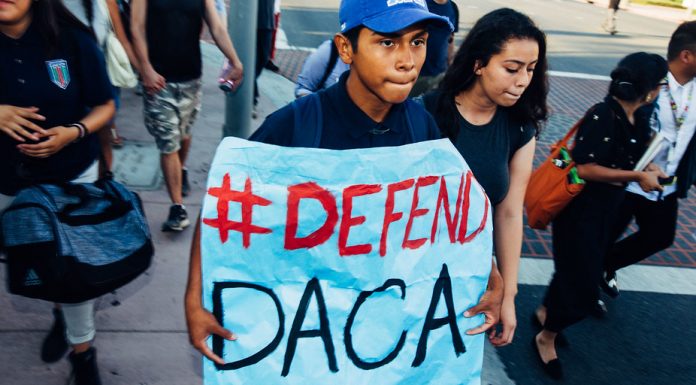Senate Democrats passed a $3.5 trillion spending package early this morning that allocates $107 billion for the Senate Judiciary Committee to find a path to amnesty and citizenship for “millions of immigrant workers and families,” The Hill reported.
The provision does not limit amnesty’s scope to so-called Dreamers—illegal aliens who came to America as minors—but instead seeks “lawful permanent status for qualified immigrants.”
Congressional Democrats want to offer amnesty to a wide range of lawbreakers: illegal aliens who work on farms, those with Temporary Protected Status, and those who work in government-classified “essential” jobs.
Combined with the broad provision in the spending bill, Democrats could stretch these criteria to include the more than 10 million illegal aliens currently residing in the United States.
Breaking with the Constitution and historical precedent, President Joe Biden called for the House and Senate Democrats to put amnesty into the budget bill, where it can pass with 50 votes and avoid the Republican filibuster.
“I think we should include in the reconciliation bill the immigration proposal,” Biden said after meeting with the Congressional Hispanic Caucus, according to The Hill.
Republicans who have enabled the radical Democratic agenda throughout the infrastructure bill negotiations, like Sen. John Cornyn, R-Texas., continue to believe that Democrats will settle for citizenship for DACA recipients.
Cornyn and Thom Tillis, R-NC, crafted legislation to give amnesty and citizenship to about 700,000 Obama-era DACA recipients.
Democrats have not taken the bait but have instead set their eyes on a bigger prize: permanent legal residence and citizenship for millions of illegal aliens and thus permanent electoral majorities for the Democratic Party.
Senator Dick Durbin, D-Ill., said that amnesty for only DACA recipients will exclude too many illegal aliens, put them at risk of deportation, and hurt the economy.
“The deportation of hundreds of thousands of DACA recipients who are helping our nation’s economy recover from the effects of the COVID-19 pandemic makes little sense,” he said.

